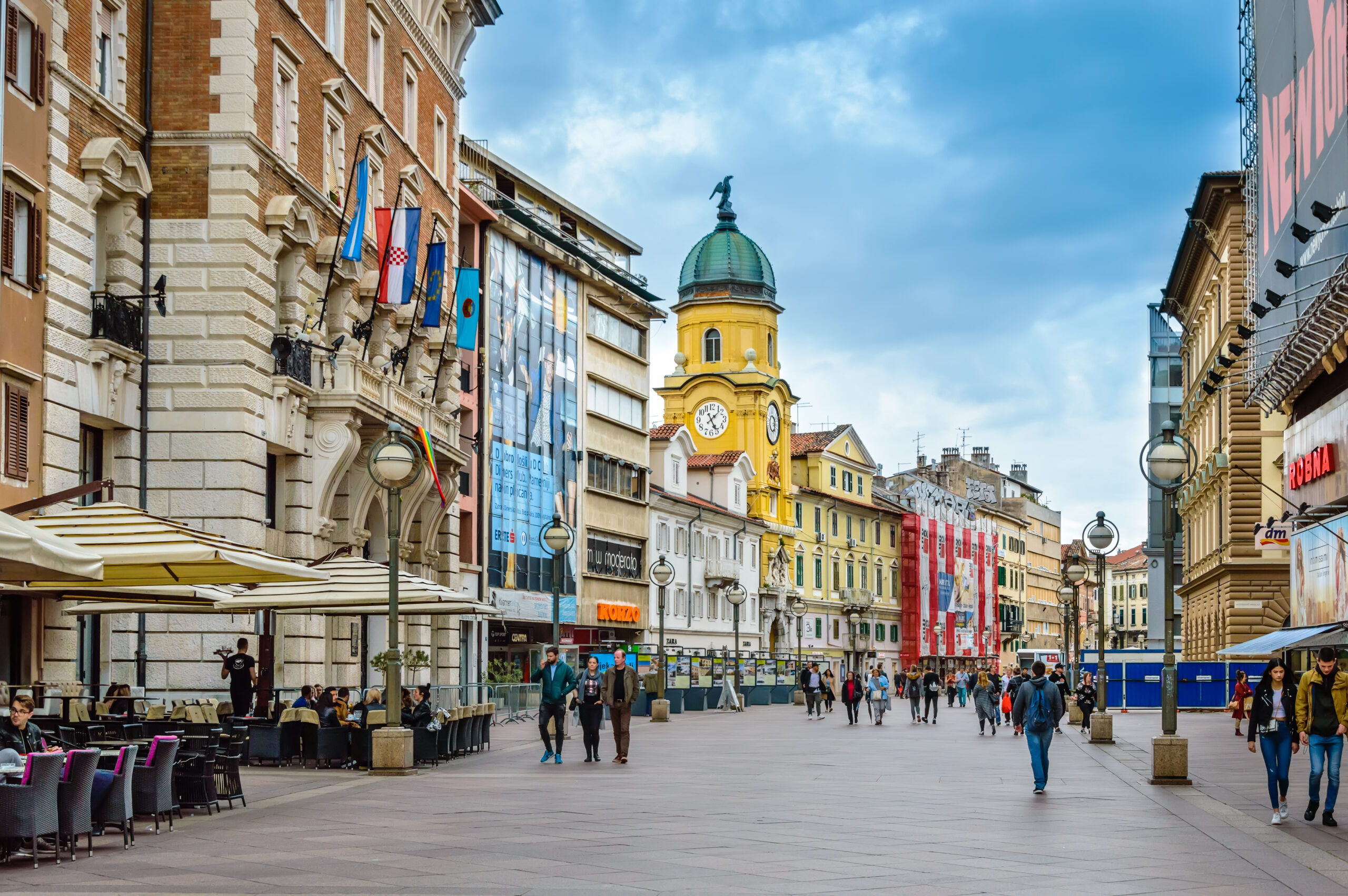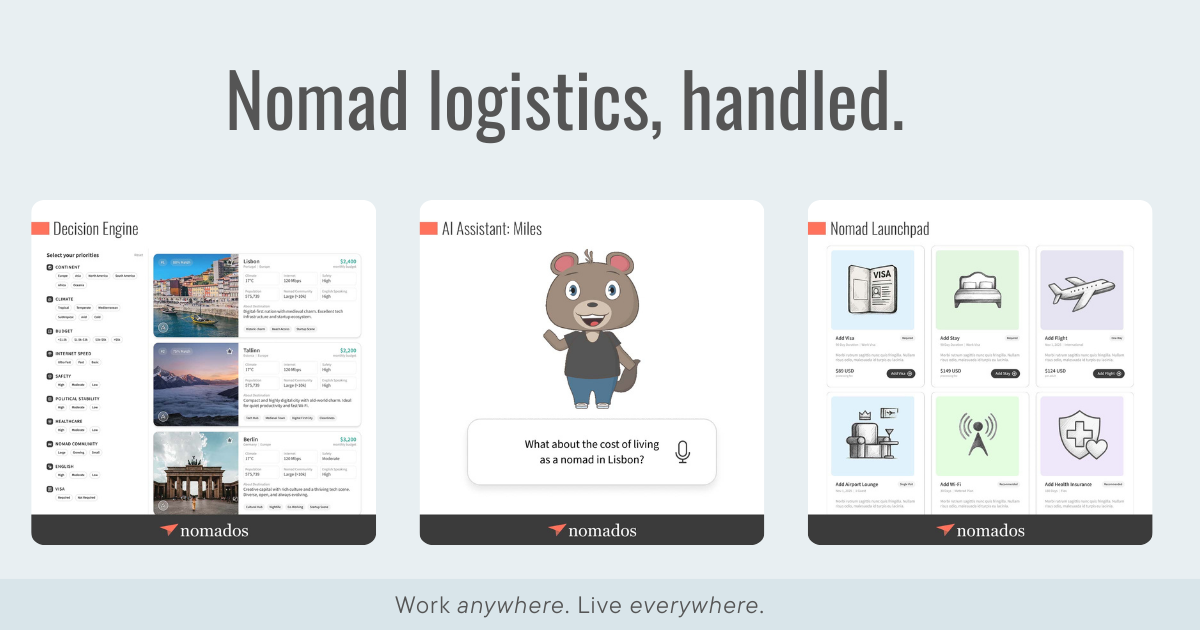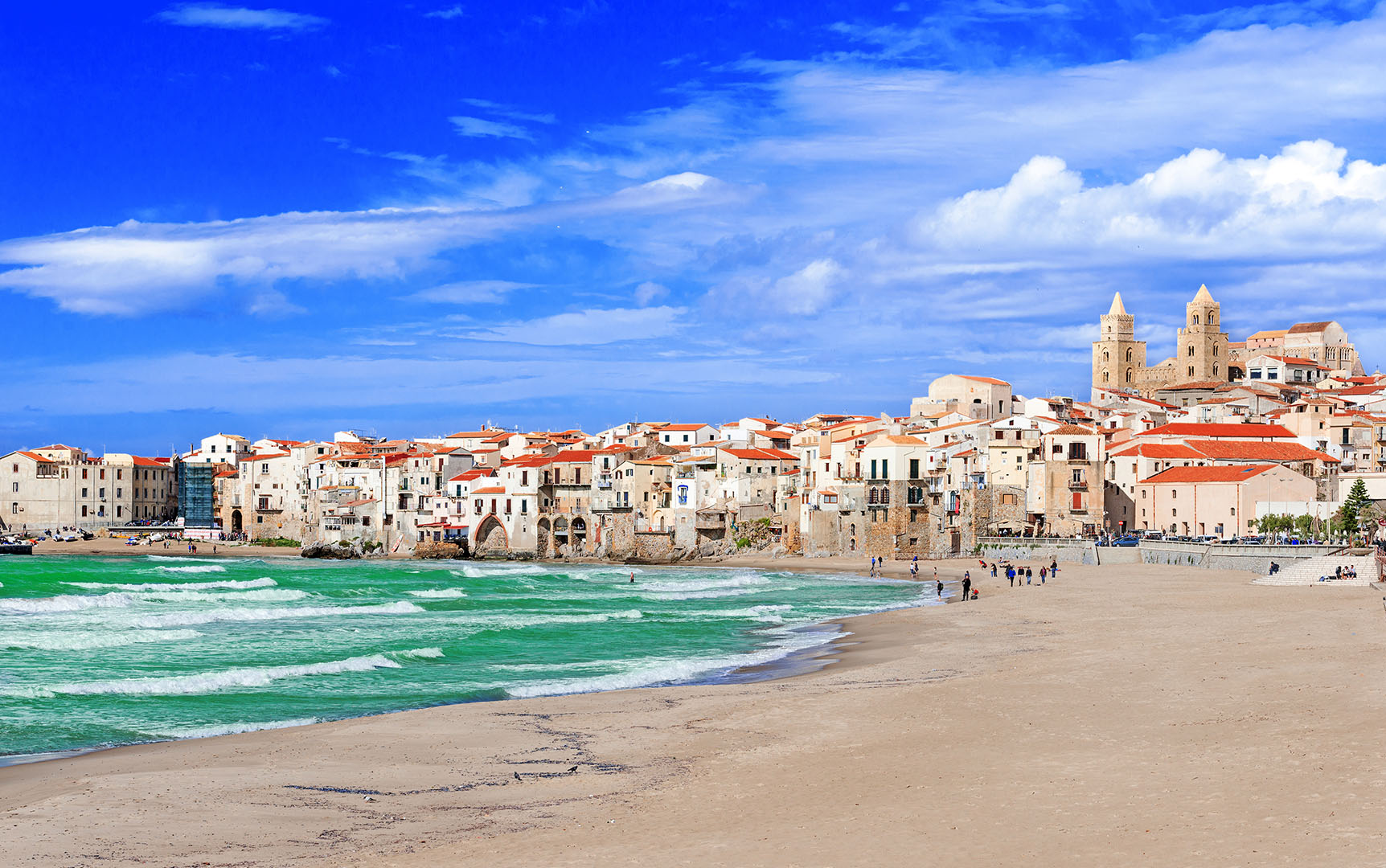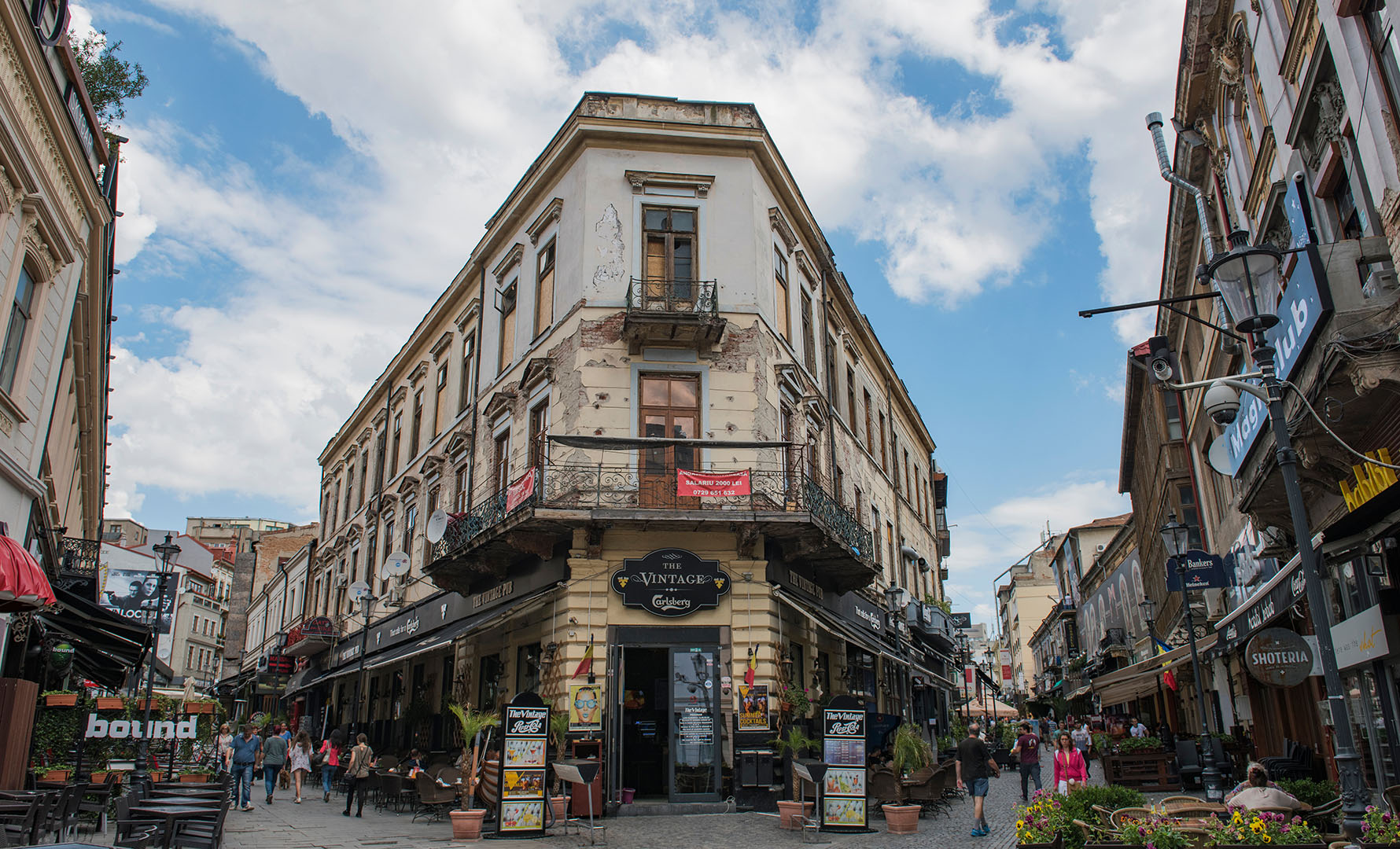Remote work blew the doors off the old nine-to-five. Laptops aren’t chained to cubicles anymore; they’re propped on café tables in Lisbon, buzzing beside motorbikes in Saigon, balanced on beach bars in Barbados. Governments noticed. Some rolled their eyes, others rolled out the welcome mat—visa stamps for the restless tribe of people who’d rather trade commutes for culture shock.
If you’re ready to stop doom-scrolling and start boarding flights, here’s our expanded guide to 30 countries making it (almost) legal to live, work, and wander.
What is a digital nomad visa?
It’s your ticket to stay longer than a tourist. More than a stamp in your passport, it’s official permission to live and work remotely—legally, without the stress of border runs.
What paperwork do you need for a digital nomad visa?
Every country has its quirks, but expect to be asked for some version of the same greatest hits:
-
Proof you actually work remotely (contracts, business registration, or client letters)
-
Bank statements showing steady income
-
A passport with at least six months left on it
-
Health insurance that works abroad
-
A clean criminal record
-
An address where you’ll be staying

1. Portugal – D8 Visa
Duration: 1 year (renewable up to 5)
Income Requirement: €3,280/month
Cost Snapshot: Lower than much of Western Europe, though Lisbon and Porto have climbed in price in recent years.
Best Cities for Nomads: Lisbon for community, Porto for charm, Madeira for island living.
Why Portugal? Strong infrastructure, vibrant nomad scene, and Schengen access make Portugal a top European base.
Read the Full Portugal Guide for Digital Nomads
2. Spain – Digital Nomad Visa
Duration: 1 year (renewable up to 5)
Income Requirement: €2,160/month
Cost Snapshot: Affordable compared to Northern Europe; Madrid and Barcelona cost more, smaller cities and regions less.
Best Cities for Nomads: Barcelona for energy, Madrid for culture, Valencia for affordability.
Why Spain? Mediterranean lifestyle, diverse cities, and a well-developed coworking culture.
Read the Full Spain Guide for Digital Nomads
3. Mexico – Temporary Resident Visa
Duration: Up to 4 years
Income Requirement: $2,600/month or equivalent savings
Cost Snapshot: Everyday costs are lower than the US, with Mexico City higher than coastal hubs like Playa del Carmen or Oaxaca.
Best Cities for Nomads: Mexico City for culture, Playa del Carmen for beach life, Oaxaca for creative community.
Why Mexico? Established nomad hubs with vibrant expat networks and deep cultural richness.
Read the Full Mexico Guide for Digital Nomads
4. Estonia – Digital Nomad Visa
Duration: 1 year
Income Requirement: €4,500/month
Cost Snapshot: Higher than much of Eastern Europe, but still less than Western European capitals.
Best Cities for Nomads: Tallinn for startups, Tartu for university energy.
Why Estonia? A digital-first society with advanced e-governance and one of the earliest dedicated nomad visas.
Read the Full Estonia Guide for Digital Nomads

5. Bali, Indonesia – Second Home Visa
Duration: 5–10 years
Income Requirement: Proof of funds (~$140,000 in a local bank)
Cost Snapshot: Daily life is affordable compared to the West, but imported goods and expat hotspots raise expenses.
Best Cities for Nomads: Canggu for coworking, Ubud for creativity, Seminyak for lifestyle.
Why Bali? Tropical living with well-established nomad infrastructure — a balance of beach, culture, and community.
Read the Full Indonesia Guide for Digital Nomads
6. Costa Rica – Rentista Visa
Duration: 2 years (renewable)
Income Requirement: $2,500/month or a $60,000 deposit
Cost Snapshot: Higher than some Latin American neighbors, but strong healthcare and safety add value.
Best Cities for Nomads: San José for convenience, Tamarindo for surf, Santa Teresa for wellness.
Why Costa Rica? A stable, eco-conscious country where “pura vida” is more than a slogan — it’s the rhythm of daily life.
Read the Full Costa Rica Guide for Digital Nomads
7. Croatia – Digital Nomad Residence Permit
Duration: Up to 1 year
Income Requirement: €2,300/month
Cost Snapshot: Lower than Western Europe; Split and Dubrovnik cost more than inland cities like Zagreb.
Best Cities for Nomads: Split for seaside life, Zagreb for culture, Dubrovnik for history.
Why Croatia? Adriatic views, affordable EU living, and a growing nomad community make Croatia an attractive European base.
Read the Full Croatia Guide for Digital Nomads
8. Colombia – Migrant (M) Visa for Digital Nomads
Duration: Up to 2 years
Income Requirement: $900/month
Cost Snapshot: One of the lowest-cost entries into nomad life; Medellín is rising in price but still offers strong value.
Best Cities for Nomads: Medellín for climate and community, Bogotá for big-city life, Cartagena for coastal energy.
Why Colombia? Low income threshold, thriving innovation hubs, and a year-round spring climate make Colombia highly attractive.
Read the Full Colombia Guide for Digital Nomads

9. Georgia – Digital Nomad Visa
Duration: 1 year
Income Requirement: $2,000/month
Cost Snapshot: One of Europe’s most affordable destinations; daily living and rent are low compared to EU countries.
Best Cities for Nomads: Tbilisi for culture and nightlife, Batumi for seaside living, Kutaisi for quiet affordability.
Why Georgia? Visa-free stays, welcoming culture, and a blend of East and West make Georgia a nomad favorite.
Read the Full Georgia Guide for Digital Nomads
10. Malaysia – DE Rantau Nomad Visa
Duration: 1 year (renewable)
Income Requirement: $2,000/month
Cost Snapshot: Lower costs than Singapore; excellent value for housing, food, and transport.
Best Cities for Nomads: Kuala Lumpur for convenience, Penang for lifestyle, Langkawi for beaches.
Why Malaysia? Reliable infrastructure, multicultural living, and easy access to the rest of Southeast Asia.
Read the Full Malaysia Guide for Digital Nomads
11. Thailand – Long-Term Resident Visa
Duration: 10 years
Income Requirement: $80,000/year
Cost Snapshot: Chiang Mai and Bangkok remain affordable for long stays; islands like Phuket run higher but offer lifestyle perks.
Best Cities for Nomads: Chiang Mai for community, Bangkok for city energy, Phuket for coastal life.
Why Thailand? A global nomad magnet that combines affordability, vibrant culture, and established remote work hubs.
Read the Full Thailand Guide for Digital Nomads
12. Vietnam – Business Visa for Remote Work
Duration: 1 year
Income Requirement: Varies by visa type
Cost Snapshot: Among the most affordable countries in Asia, though Hanoi and Ho Chi Minh City cost more than smaller cities.
Best Cities for Nomads: Ho Chi Minh City for energy, Hanoi for culture, Da Nang for coastal living.
Why Vietnam? Fast-growing tech ecosystem, excellent food, and a budget-friendly base for long stays.
Read the Full Vietnam Guide for Digital Nomads
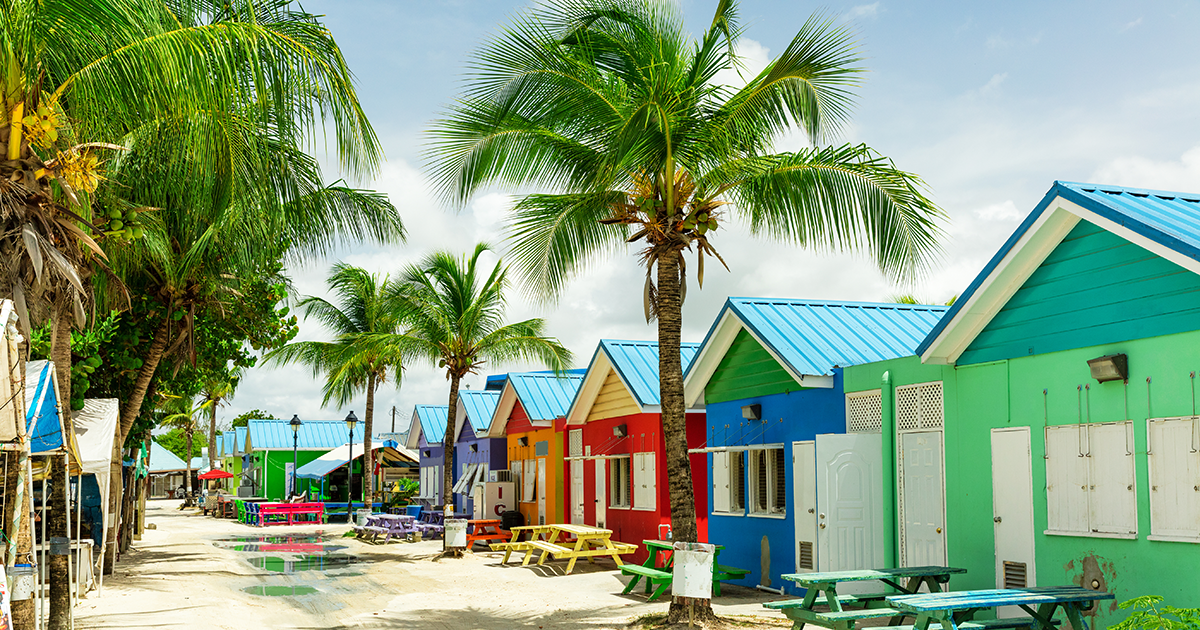
13. Germany – Freelancer Visa
Duration: 6 months–3 years
Income Requirement: Proof of sufficient income
Cost Snapshot: Higher than much of Europe; Berlin and Munich are pricey, but Leipzig and smaller cities offer better value.
Best Cities for Nomads: Berlin for startups and culture, Munich for business, Leipzig for affordability.
Why Germany? Europe’s economic hub, excellent infrastructure, and a freelancer visa that can open the door to permanent residency.
Read the Full Germany Guide for Digital Nomads
14. Barbados – Welcome Stamp
Duration: 12 months (renewable)
Income Requirement: $50,000/year
Cost Snapshot: Higher cost of living than much of the Caribbean, but offset by strong connectivity and modern amenities.
Best Cities for Nomads: Bridgetown for access and services, Holetown for lifestyle.
Why Barbados? White-sand beaches, reliable internet, and a simple visa process make Barbados a top island option.
Read the Full Barbados Guide for Digital Nomads
15. Greece – Digital Nomad Visa
Duration: 1 year (renewable up to 3)
Income Requirement: €3,500/month
Cost Snapshot: Athens is mid-range compared to Western Europe; islands like Mykonos and Santorini run higher.
Best Cities for Nomads: Athens for community, Thessaloniki for affordability, Crete for island living.
Why Greece? Ancient history, island views, and tax benefits — Greece delivers culture and lifestyle in equal measure.
Read the Full Greece Guide for Digital Nomads
16. Uruguay – Digital Nomad Visa
Duration: 6–12 months (renewable)
Income Requirement: No fixed minimum, just proof you earn remotely
Cost Snapshot: Comparable to Eastern Europe; daily life is affordable, but imported goods run higher.
Why Uruguay? Safe, coastal living with reliable Wi-Fi and a low-key lifestyle.
Read the Full Uruguay Guide for Digital Nomads
17. Cyprus – Digital Nomad Visa
Duration: 1 year (renewable to 2)
Income Requirement: €3,500/month after tax
Cost Snapshot: Lower than most of Western Europe, but higher than nearby Balkans.
Why Cyprus? Mediterranean sun with a side of English-speaking convenience. Limassol and Nicosia are modern, wired, and friendly to nomads.
Read the Full Cyprus Guide for Digital Nomads
18. Malta – Nomad Residence Permit
Duration: 1 year (renewable up to 3)
Income Requirement: €2,700/month gross
Cost Snapshot: More than Eastern Europe, less than London or Paris; value lies in lifestyle and location.
Why Malta? Easy Schengen access, a thriving expat crowd, and a compact island that mixes old stone streets with fast internet.
Read the Full Malta Guide for Digital Nomads
19. South Africa – Remote Working Visa
Duration: Up to 3 years
Income Requirement: R1,000,000/year (~$54,000 USD)
Cost Snapshot: Everyday living is inexpensive compared to Europe or the US, but plan for higher costs in upscale neighborhoods and during travel.
Why South Africa? Cape Town has coworking cafés with mountain views, world-class wine down the road, and rent that won’t break you.
Read the Full South Africa Guide for Digital Nomads
20. Brazil – Digital Nomad Visa
Duration: 1 year (renewable up to 2)
Income Requirement: $1,500/month or $18,000 in savings
Cost Snapshot: Daily life and housing are lower than Europe or North America, though imported tech and coastal hotspots can be pricier.
Why Brazil? From Rio’s beaches to São Paulo’s startup scene, Brazil delivers culture, energy, and a digital nomad visa with a modest income bar.
Read the Full Brazil Guide for Digital Nomads
21. Chile – Temporary Residence Visa for Remote Workers
Duration: 1 year (renewable, with path to residency)
Income Requirement: Proof of steady remote income (no fixed minimum published)
Cost Snapshot: Santiago’s costs are similar to Southern Europe, while smaller cities and coastal towns are more affordable.
Why Chile? Stable, modern, and wired — with Patagonia and the Atacama Desert waiting once you close the laptop. Chile is South America’s most reliable base.
Read the Full Chile Guide for Digital Nomads
22. Bulgaria – Digital Nomad Visa (Long-Stay Option)
Duration: 1 year (renewable, with options for long-term stay)
Income Requirement: Proof of remote income, no fixed minimum published
Cost Snapshot: One of the lowest-cost EU countries; Sofia and Plovdiv offer strong value for rent, food, and coworking.
Why Bulgaria? Affordable European base with mountains, Black Sea beaches, and a growing coworking culture — Bansko is a nomad hotspot.
Read the Full Bulgaria Guide for Digital Nomads
23. Philippines – Special Resident Retiree’s Visa (Nomads Use This Route)
Duration: Indefinite (renewable as long as criteria are met)
Income Requirement: Deposit requirement starts at $10,000 plus steady income
Cost Snapshot: Everyday living is low-cost compared to most of Asia, though imported goods and upscale areas are higher.
Why Philippines? Island life with English widely spoken and an easygoing culture. Manila for business, Cebu and Siargao for surf and sand.
Read the Full Philippines Guide for Digital Nomads
24. Poland – Business/Work Visa Path for Nomads
Duration: 1 year (renewable, with options for longer stays)
Income Requirement: Proof of self-employment or client contracts
Cost Snapshot: Warsaw is climbing toward Western European prices, but Kraków, Wrocław, and Gdańsk remain accessible.
Why Poland? A central EU hub with rich history, strong infrastructure, and a growing community of remote workers.
Read the Full Poland Guide for Digital Nomads
25. United Arab Emirates (Dubai) – Remote Work Visa
Duration: 1 year (renewable)
Income Requirement: $3,500/month
Cost Snapshot: Dubai ranks high for housing and lifestyle costs, but coworking, infrastructure, and flight connections are world-class.
Best Cities for Nomads: Dubai for global connectivity, Abu Dhabi for quieter living.
Why UAE? A global hub where nomads mix skyscraper offices with desert escapes. Dubai’s visa makes it easy to plug into one of the best-connected cities on earth.
Read the Full Dubai Guide for Digital Nomads
26. Hungary – White Card (Digital Nomad Visa)
Duration: 1 year (renewable to 2)
Income Requirement: €2,000/month
Cost Snapshot: Budapest offers excellent value compared to Western Europe — affordable apartments, vibrant nightlife, and efficient transport.
Best Cities for Nomads: Budapest for culture and coworking, Debrecen for affordability.
Why Hungary? Fast internet, thermal baths, and a capital city that blends café culture with coworking energy. Hungary is one of Central Europe’s most nomad-friendly stops.
Read the Full Hungary Guide for Digital Nomads
27. Italy – Digital Nomad Visa
Duration: 1 year (renewable)
Income Requirement: Roughly €2,500/month (final rules evolving)
Cost Snapshot: Big cities like Rome and Milan are pricey, but smaller towns and the south deliver better value while keeping the Italian charm.
Best Cities for Nomads: Rome for history and coworking, Milan for business, Florence for culture, Palermo for Mediterranean lifestyle.
Why Italy? Food, history, and lifestyle — Italy’s new digital nomad visa finally lets remote workers linger past the tourist deadlines.
28. Romania – Digital Nomad Visa
Duration: 1 year (renewable up to 2)
Income Requirement: €3,300/month
Cost Snapshot: Bucharest remains affordable compared to most of the EU, with excellent value on housing, food, and coworking.
Best Cities for Nomads: Bucharest for big-city buzz, Cluj-Napoca for tech, Brașov for mountain life.
Why Romania? Strong internet (some of the fastest in Europe), historic towns, and vibrant nightlife make Romania a hidden gem for nomads.
Read the Full Romania Guide for Digital Nomads
29. Czech Republic – Freelance “Zivno” Visa
Duration: 1 year (renewable, with residency options)
Income Requirement: Proof of freelance contracts and ability to support yourself (~€5,500 in savings recommended)
Cost Snapshot: Prague is edging toward Western European prices, but other cities stay accessible.
Best Cities for Nomads: Prague for culture and community, Brno for startups, Ostrava for lower costs.
Why Czech Republic? A well-worn path for freelancers — rich history, central European location, and a solid legal route to stay longer.
Read the Full Czech Republic Guide for Digital Nomads
30. Iceland – Long-Term Remote Work Visa
Duration: 6 months (non-renewable)
Income Requirement: $7,800/month for individuals
Cost Snapshot: One of the highest living costs in the world, but offset by scenery you can’t find anywhere else.
Best Cities for Nomads: Reykjavik is the main base; smaller towns are stunning but less practical for long stays.
Why Iceland? Dramatic landscapes, geothermal spas, and a safe, modern society — Iceland is a short-term but unforgettable nomad option.
Disclosure: Portions of this article were created with the assistance of AI tools and reviewed by the Nomados editorial team for accuracy and clarity.
